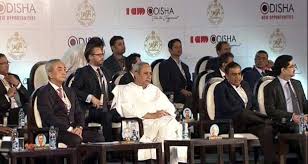Most of the world is dealing with an unprecedented crisis right now with avoidance of all types of human contact the only cure thus, it has stopped most economic activity.
We should be grateful this Chinese-origin crisis stuck at a time when physical distance between people could not stop a big chunk of our economic activity otherwise we would have been really in a mess.
Imagine having to work from home without internet. Impossible! Either we would have to go out of job or people would have had to rely on their faith in their fellow human beings and trust their luck to venture out into their offices for work. Moreover, industries such as hospitality, transportation and others would be in a much better place.
Anyway, let us not get distracted.
India is the land of opportunities | 21st century belongs to Asia/India | India will lead the world in the 21st century
We have all been hearing such rhetoric for a long time now. These sentences are usually thrown around at business conferences by Indian business leaders as well as CEOs of foreign companies that are already invested in India (and need to justify it to their board) with politicians taking it as a validation of their continuous work for the people.
There has been a curious rise in the number of Investment Summits by different state governments over the last few years.
Investment Summits are like fashion shows but instead of starving semi-nude models, we have top businessmen lining the dais led by the ambitious/charming/visionary political leader (depends on how the politicians view himself!) leading them towards a rainbow of opportunities.
The first Chief Minister to do such an event was our current Prime Minister Narendra Modi who dazzled the media with the Vibrant Gujarat Summit in 2003. (The bureaucrat who handled it for him is now with him in the Prime Minister’s Office).

However, this has now become a trend and a necessity for any CM, especially if he/she is looking to increase their business credentials and cultivate a pro-business image to attract the all-elusive jobs to their states.
Summits in West Bengal, Odisha, Kerela and Punjab.
Even the communist state of West Bengal has started hosting such investment summits.
Investments are important because new factories and industries will generate much-needed jobs in the states. Moreover, the most important headline or outcome that people look at after the event is the value of the total MoUs signed or the total value of the investment proposals.
The headline becomes the total value of investments that have been promised during the summit. This number typically for each event is in lakhs of crores.
If each event across each state is garnering lakhs of crore of investments then we should all be technically drowning in jobs but the last time I checked, that’s clearly not happening.
The reason is that much of the total investment ‘promised’ never materialises. Not all those who make such announcements fulfil their promise. Apart from grabbing headlines, this number doesn’t make any sense. The number to look out for is the actual investment on the ground which is typically revealed at the next edition of the summit.
Looking at the outcome of these summits, one would be surprised to see that only 20-30% of the total MoUs value actually translates on to the ground. (Below)

Investment proposals received by various states.
Some companies, especially Indian, are just there like college students who do not want to end up with short attendance (in the political good books of the CM and the ruling party) and are present to lend credibility to the event or pay their tributes. They either jazz up their existing investment in the state or just conjure up a project that they would like to do while signing MoUs.
However, most of the businessmen – be it Indians or foreign - present there are actually scouting for good opportunities. Then why do we see such low conversion rates? (Below)

The conversion rate of some states.
The main factors of production or requirements to do business are – land, labour, laws and capital.
Companies, especially foreign companies, have no problem in arranging capital, although many Indian companies are at a disadvantage due to the high cost of borrowing compared to western countries where capital is available at very low-interest rates – it has almost been dropped to zero by the US to tackle the liquidity crunch in the wake of coronavirus.
The world has been flocking to India and China for cheap labour – cheap labour in manufacturing in China and cheap English-speaking labour for the services sector in India.
Finding skilled manpower is still an issue for companies but they are able to handle that by training them in-house or on the job.
Infosys has built a large campus in Bengaluru where it trains thousands of engineers in skills required for the job that it picks up from colleges every year in bulk.
Land and Laws is where most of the companies give up. Acquiring land in India is very tricky and can lead to massive protests that have the potential to topple governments. The land reforms implemented by the Communist Party in West Bengal in the 1970s was responsible for them remaining in power for over 3 decades (1977-2011). They were facing natural anti-incumbency that comes with long stints in power but their exit was triggered by the infamous Nandigram movement.
In 2009, Tata wanted to set up its Nano factory in Singur and Nandigram but the land acquisition was so difficult and mismanaged that it turned into a full-blown violent revolt with many people losing their lives.
Now let’s come to the most crucial factor that stifles all investment and strangles even the most optimistic investors/businessmen – Regulations and Red-Tape.
Regulations are meant for safeguarding the interest of all stakeholders and acts as a system of checks and balances. Unfortunately, it repels businesses like humans from Chernobyl!
Indian Babus or bureaucrats are notorious for impeding investments rather than aiding them. If they are somehow taken care of – mostly requires micro-management by the CM or a direct line to the CM bypassing all babus – then the 20th-century regulations that have an underlying assumption of suspecting businesses as evil and exploitative do the rest.
Both the brothers – Socialism and Communism – have destroyed more jobs and lives than they claimed to have saved or empowered.
Navigating the labyrinth of regulations in India is no easy task. If you ever get a chance to get into the details, you will come across many paradoxes and eventually find it to be a great application of the Schrodinger's Cat experiment.
Bottom line is businesses want to invest, politicians need the investment but regulations kills all possibilities. Now, I’ll get to the point.
The solution lies in abolishing regulations which cannot be done in normal times but these are not normal times – we are in the middle of a once-in-a-century crisis.
Reforms or change in regulations is tough for many reasons – institutional inertia (laziness of babus), special interest groups in the ruling party (lobbies that support the CM/party) or bad political culture (think protests in West Bengal).
A great example of special lobbies blocking reforms is the farmer netas of Maharashtra that rely on government control or licence raj in the farming sector as a source of their funds, power and political patronage. Thus, no reform in the farming sector can be expected by them.
BTW recent changes have made farming profitable – read how!
A crisis provides a unique opportunity for leaders to quickly push through the long-pending and problematic reforms that would otherwise require political capital as most people are busy in tackling the crisis. The reforms also act as the decisive action that people expect governments to take in such times when in reality all that they can do to smoothen the crisis, is maybe enhance sarkaari efficiency – in your dreams baby!
Political capital is the support a politician enjoys from the public – like money in his political bank account (– typically a cooperative bank because netas love those!) Reforms erode support as medicine is often sour which compels netas to dole out freebies before elections to earn back some of the lost political capital.
Luckily some smart CMs (Yes, they do exist and we need more of them!) have quickly acted on this small window of opportunity provided by the coronavirus.
They have gone all-out to abolish regulations across the board, especially the labour laws (that makes hiring and firing difficult) and ending the license raj in farming, making it much easier to do business in India by ensuring minimal red-tape and removal of burdensome compliance of outdated regulations.
Isn’t having no regulations dangerous and who can guarantee that companies won’t exploit their workers?
First of all, nobody can exploit you if you don’t have a job! Just because we assume businesses do that doesn’t mean it actually happens.
No business can prosper by mistreating its employees and even if it does, then the employees can switch jobs as no regulation results in increased competition -> more companies -> more jobs!
Starting from zero regulations will allow the government to streamline regulations with the re-introduction of only the necessary and important ones to draw a basic and simple-to-follow regulatory framework that encourages competition -> more jobs rather than a scenario of zero competition and no jobs.
Normal politicians despise and dread a crisis while great leaders eagerly wait for one!
Check out the links for the figures in the table above in this file.




Comments